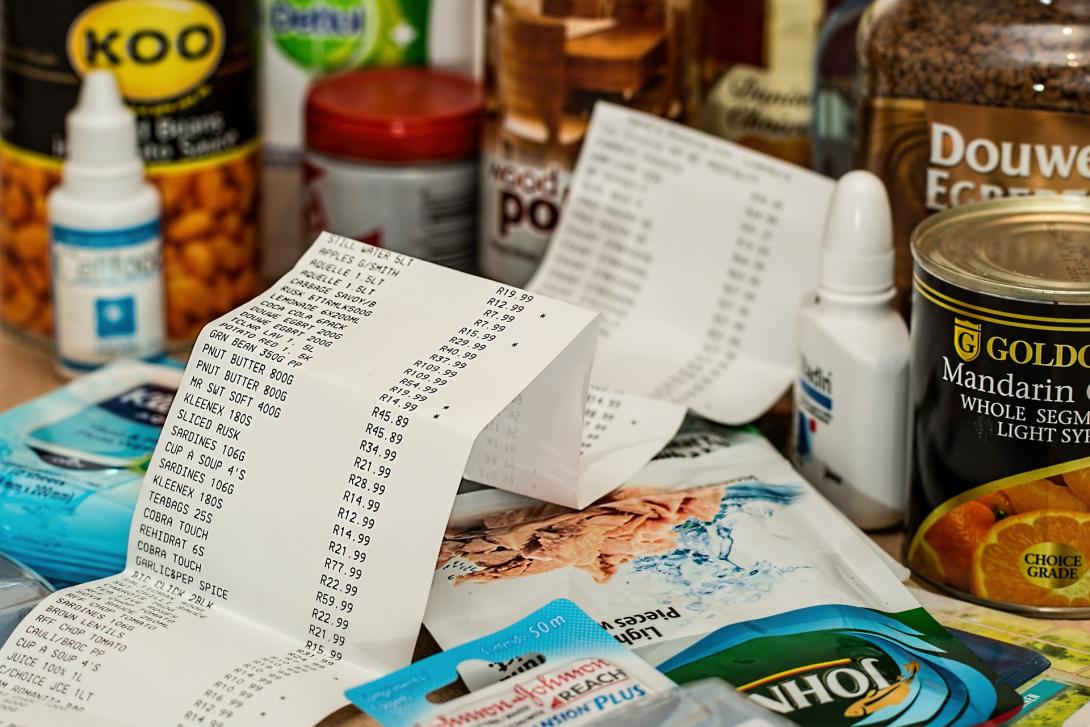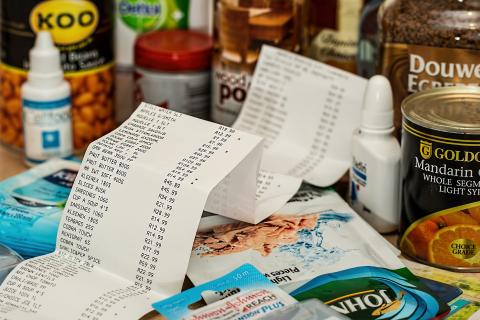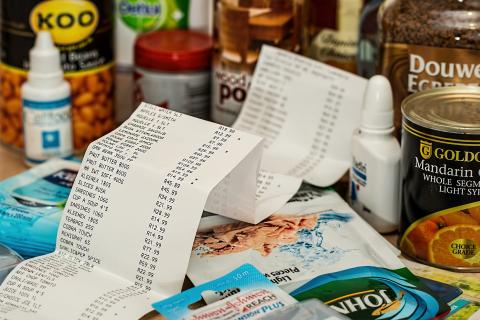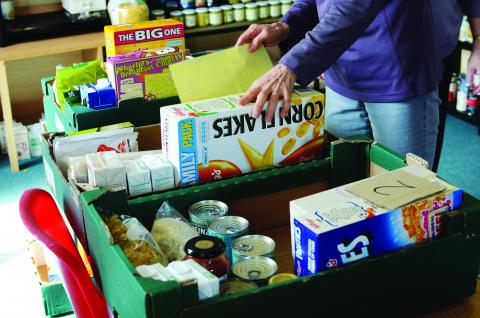21 July 2022
Food Prices Tracking: July Update

Food prices in the UK continue to rise, with food price inflation reaching 9.8% in the 12 months to June
Overall inflation has reached another 40 year high, with the latest ONS figures showing overall inflation of 9.4% in the 12 months to June 2022- largely driven by rising fuel and food costs. Economists estimate that overall inflation will continue to rise, with some predicting a 11% rise this autumn due to the Ukraine war and economic sanctions on Russia1.
Take-home retail prices for commonly purchased food and drink items have risen by 9.8% in the 12 months to June 2022, up from 8.7% in May. This is the highest 12 month increase since March 2009. Compared to the annual increase in May, June figures shows that prices have risen across the food categories (except sugar and confectionery), with the highest increase seen in milk, cheese and eggs, meat and vegetables2.
Kantar estimates that families’ average grocery bills will rise to £454 this year, with milk and cheese being the biggest driver of price increases. Their prediction has risen by a further £70 higher since last month, indicating that inflation is increasing at a faster rate than predicted3.
Global food price inflation rate
The June 2022 FAO Food Price Index has seen a slight decline since April 2022, though is still 23% above its value a year ago. While international meat and dairy prices are still increasing, these increases have been offset by decreasing international prices of vegetable oils, cereals and sugars4.
The Food Foundation’s Basic Basket Tracker
Our Basic Basket Tracker measures the weekly prices of two baskets of food – one for an adult male and one for an adult female – as part of a reasonably-costed, nutritionally-adequate diet. It is important to note that the Basic Basket is not reflective of what people on the lowest incomes are able to afford or would regularly purchase. It is based on the established Minimum Income Standard research which is rooted in public consensus about what constitutes a socially acceptable diet. (See here for further info and methodology).
The Food Foundation have been tracking the price of the baskets since April 2022. Since then the cost of the basket food for an average woman has increased by 7% and for a man by 10% (not including promotions). These averages mask larger price increases for some products within the baskets, for example sunflower oil (up 60%), cucumber (up 38%), spring onions (up 50%), and cheddar cheese (up by 25%). Because we track specific products within these baskets, this does not necessarily indicate average price changes in these product categories across the board, but does provide examples of the sorts of increases shoppers are facing.
Increasing pressure on school food catering
The rise in inflation continues to put pressure on the food sector. The school catering industry is particularly under pressure with spikes in food prices compounded by increased staffing and utility costs. Government has offered a small increase in funding for means-tested Free School Meals (FSM) and Universal Infant Free School Meals (UIFSM) (7p per meal for UIFSM and 6p per meal for FSM) which remains far less than inflation5.
School cooks and caterers are working hard to deliver nutritious school meals, many making clever adjustments to the menu so that they can continue to meet the school food standards. Despite this, a recent survey commissioned by the Soil Association reports that 47% of school caterers in England are worried that they will be unable to meet the School Food Standards due to the rising cost of living and ongoing supply chain issues. Furthermore 13% of caterers have stated that they have already fallen short of the Standards, which could adversely affect pupils - especially the poorest families who are most dependent on high quality school meals to support their nutrition6. Expanding eligibility for Free School Meals would help ensure the scale needed to make the school meal system financially viable, with a knock-on positive impact on the quality of school meals. A good nutritious school lunch is by far a better option for children than going without; especially as we know only 1.6% of packed lunches meet school food standards7.
Peak inflation is yet to come
We are still yet to see the peak of inflation as the Bank of England predicts inflation to hit 11% in October, with some economists not expecting it to fall back down to 2% before mid-20248.
As the peak of inflation is predicted to come with the rise in energy bill cap in October, households’ budgets are put under more pressure, particularly as wages are not reflecting the rate of inflation9. Household are feeling the squeeze even after the Government’s support package on gas and electric bills and benefits.

Indu joined The Food Foundation in 2019 as part of the Rank Foundation’s Time to Shine scheme, moving into a Project Officer role in 2020. She works on the Peas Please and Plating up Progress projects. Prior to joining The Food Foundation, Indu completed a MSc in Public Health and a BSc in Human Nutrition. She is interested in reducing health inequalities, children’s health and wellbeing, and sustainable and nutritious food system/diets. Indu is also a lover of veg, having recently taken up urban gardening.

Isabel joined The Food Foundation as Policy Engagement Manager in April 2020 from the Department for Business, Energy and Industrial Strategy, where she worked on domestic and EU policy development. For the past 6 years she has worked in a variety of roles across Government, spanning EU policy implementation at the Department for Environment, Food and Rural Affairs, auditing the value for money of Cabinet Office programmes, and coordination of Defra’s no deal planning at the Department for Exiting the EU. She has also previously project managed large-scale digital campaigns at AgeUK.
Isabel is interested in the links between different parts of the food system, and the possibilities for really ambitious, joined-up policy thinking to address poor environmental, social, health and economic outcomes. Over the past 2 years she has completed a part-time MSc in Food Policy from City University, using her final thesis to analyse and critique the influencing strategies adopted by NGOs working on palm oil consumption in India. She is a professionally trained cook, and has recently discovered the joys of growing her own fruit and veg!





